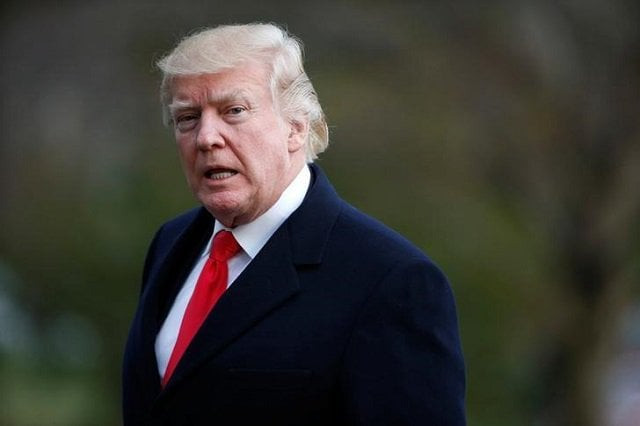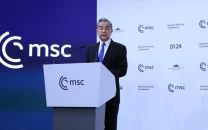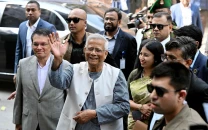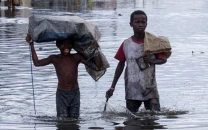Anti-coal drive at UN climate talks shadowed by pro-coal Trump
Trump announced that America would abandon the pact, but the rules say this cannot happen until November 2020.

US President Donald Trump
Photo: REUTERS
Led by Canada and Britain, the "Powering Past Coal Alliance" commits the nations, cities, and regions to weaning themselves off a commodity that still produces about 40 per cent of the world's electricity -- a major contributor to global warming caused by greenhouse gas emissions.
The list includes Angola, Belgium, Finland, France, Italy, the Marshall Islands, the Netherlands, New Zealand, Portugal, Sweden and Scotland, as well as the cities of Beijing, Berlin and Delhi, and several American states including Hawaii, California, New York Oregon and Washington.
"This is another positive signal of the global momentum away from coal, benefiting the health of the climate, the public and the economy," said Jens Mattias Clausen of Greenpeace.
"But it also puts on notice the governments who lag behind on ending coal, or those who promote it, that the world's dirtiest fossil fuel has no future."
Later Thursday, an American official will address the penultimate day of the annual climate gathering.
With most countries represented by heads of state or cabinet ministers at a "high-level segment" of the conference, Washington sent an acting assistant secretary of state, Judith Garber.
She will address delegates just three days after White House officials drew the ire of observers and delegates by hosting a sideline event defending the continued use of fossil fuels at a forum dedicated to the pursuit of greener alternatives.
Announcing Garber's participation, the State Department emphasised that the Trump administration's position on the climate-rescue Paris Agreement "remains unchanged", and it would withdraw "as soon as it is eligible to do so, unless the president can identify terms for engagement that are more favourable to American businesses, workers, and taxpayers."
The United States ratified the hard-fought global pact, championed by former president Barack Obama, just two months before Donald Trump, who has called climate change a "hoax", was elected to the White House.
Trump announced in June that America would abandon the pact, but the rules say this cannot happen until November 2020.
The United States is the world's biggest historical greenhouse gas polluter, and second only to China for current-day emissions.
Its presence at the Bonn talks has not been universally welcomed, especially as it has taken a tough line on a demand from developing countries for a firmer commitment to climate finance.
Climate talks under shadow of Trump threats
Many question why the US is here at all, given its abandonment of the Paris Agreement.
The State Department explained Washington's participation was "to ensure a level playing field that benefits and protects US interests."
The 2015 Paris Agreement, which took more than two decades to negotiate, commits countries to limiting average global warming to under two degrees Celsius (3.6 degrees Fahrenheit) over Industrial Revolution levels, and 1.5 C if possible, to avert calamitous climate change-induced storms, drought and sea-level rises.
Nations submitted voluntary emissions-cutting commitments to bolster the deal.
A report Wednesday said America's withdrawal will boost global temperatures, calculated on current country pledges, by nearly half a degree Celsius by 2100, for a total of 3.2 C.
"The Paris Agreement is a global pledge to hand over a healthy planet to future generations, and now the time has come to show that we will honour this pledge," European Union climate change commissioner Miguel Canete told delegates Thursday.
Since Monday last week, bureaucrats have haggled over a Paris Agreement "rule book", which will specify how countries must calculate and report their emissions cuts.
Finance to help developing countries prepare for, and deal with, the fallout from climate change, has held up progress.
Ministers and heads of state arrived Wednesday for a closing three-day push to unlock the toughest standoffs.
"Our task has been made all the more difficult with the disengagement of the world's largest historic emitter from the Paris Agreement," said Maldives environment minister Thoriq Ibrahim, representing the Alliance of Small Island Developing States.
"But political challenges are nothing new to this process, the unfortunate development should be seen as an opportunity to increase our ambition, not retreat from our responsibility."



















COMMENTS
Comments are moderated and generally will be posted if they are on-topic and not abusive.
For more information, please see our Comments FAQ